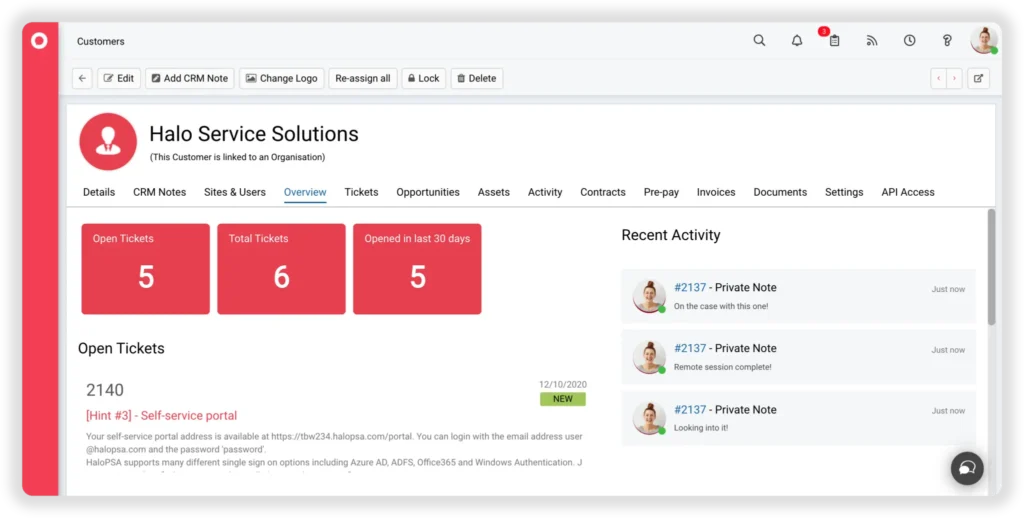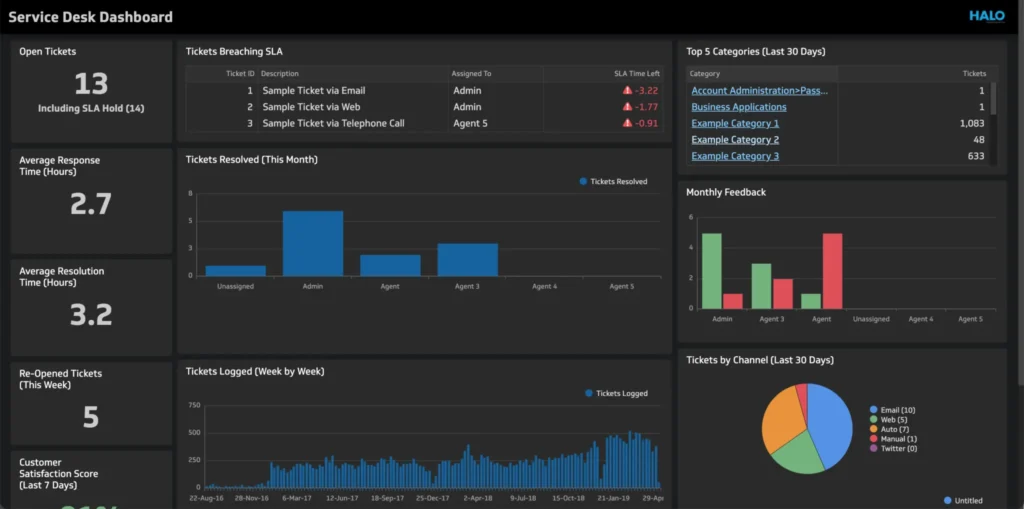Connect best of breed systems together for the ultimate unified platform.
Easily automate asset information syncing for service, billing and reporting.

Give agents the right context.
HaloPSA automatically brings customer-related information together as soon as the customer gets in contact – such as service level, PAYG and assets covered by the contract.
Bring your business data and systems together
Centralised information around the customers, their assets and service level is a great way to delivery the most effective, accurate and helpful service to customers whilst keeping stakeholders informed.

Incident Management
Easily manage incidents and meet SLAs through HaloPSA’s ITIL-aligned incident management. Automation of workflows and centralising communications has never been easier.
Problem Management
Escalate and manage ongoing problems, investigate root causes of issues, and achieve in-depth resolution to standards far higher than the industry norm. HaloPSA allows powerful management of any issue, enabling your company to deliver exceptional problem resolution.
Change Control
Track, plan, and execute organisational changes of any scale with HaloPSA’s outstanding change control capability. Ensure deadlines are met and practices remain standardised throughout your entire company.
Knowledge Management
Knowledge management is the process of capturing, developing, sharing, and effectively using organisational knowledge. It refers to a multi-disciplined approach to achieving organisational objectives by making the best use of knowledge.
Request Fulfilment
Request fulfilment is the process responsible for managing the life cycle of all service requests from the users. It is the process for dealing with service requests, many of them are actually smaller, or low risk. The purpose needed to fulfil a request will vary depending upon exactly what is being requested.
Service Catalogue
ITIL Service Catalogue Management aims to ensure that a service catalogue is produced and maintained, containing accurate information on all operational services and those being prepared to be run operationally. This process provides vital information for all other ITIL service management processes: service details, current status and the services’ inter-dependencies.
